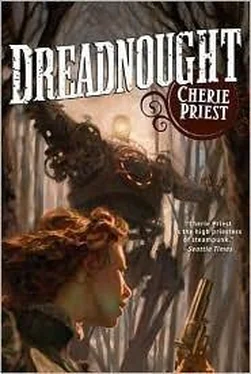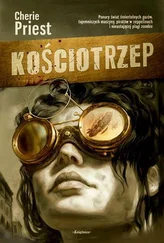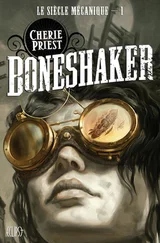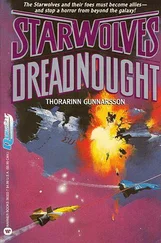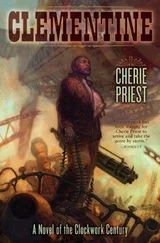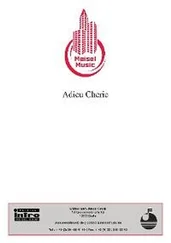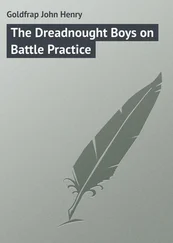Cherie Priest - Dreadnought
Здесь есть возможность читать онлайн «Cherie Priest - Dreadnought» весь текст электронной книги совершенно бесплатно (целиком полную версию без сокращений). В некоторых случаях можно слушать аудио, скачать через торрент в формате fb2 и присутствует краткое содержание. Год выпуска: 2010, ISBN: 2010, Жанр: Фантастика и фэнтези, на английском языке. Описание произведения, (предисловие) а так же отзывы посетителей доступны на портале библиотеки ЛибКат.
- Название:Dreadnought
- Автор:
- Жанр:
- Год:2010
- ISBN:978-0-7653-2578-5
- Рейтинг книги:3 / 5. Голосов: 1
-
Избранное:Добавить в избранное
- Отзывы:
-
Ваша оценка:
- 60
- 1
- 2
- 3
- 4
- 5
Dreadnought: краткое содержание, описание и аннотация
Предлагаем к чтению аннотацию, описание, краткое содержание или предисловие (зависит от того, что написал сам автор книги «Dreadnought»). Если вы не нашли необходимую информацию о книге — напишите в комментариях, мы постараемся отыскать её.
Dreadnought — читать онлайн бесплатно полную книгу (весь текст) целиком
Ниже представлен текст книги, разбитый по страницам. Система сохранения места последней прочитанной страницы, позволяет с удобством читать онлайн бесплатно книгу «Dreadnought», без необходимости каждый раз заново искать на чём Вы остановились. Поставьте закладку, и сможете в любой момент перейти на страницу, на которой закончили чтение.
Интервал:
Закладка:
Maybe, then. Maybe she’d know him.
But would he know her ? It’d been a lifetime between knee-high childhood and Robertson nurse. She’d grown several feet, to a height that was just shy of “quite tall” for a woman, and the corn-tassel blond hair of her youth had grown to a darker shade that was closer to unpolished gold than to baby yellow. The willowy limbs of her formative years had given way to a frame that was sturdy enough for farm work, or hospital work. She was not dainty, if in fact she ever had been.
She hesitated at the edge of the street, recoiling from the traffic and wondering if she shouldn’t go back to the office to send another telegram to let her mother know what she was doing. But then she came back to her senses and resolved to write a letter and post it from the road.
Always easier to ask forgiveness than permission.
On the street corner, a little boy in ill-fitting pants cried out the daily news. He hefted a stack of papers up like a Roman shield and declared the latest known troop movements, wins, losses, and points of interest. “Yankees rebuffed at Nashville!” he declared. “Maximilian the Third calls for Texian investigation into missing peace force!”
She took a deep breath, picked the appropriate direction, and got walking. The boy’s bellowing voice followed her. “Mystery surrounds northwestern dirigible disappearance in Texas! Terrible storm strikes Savannah! Rebs take heavy losses in Bowling Green!”
She shuddered and kept moving, four blocks past the narrow three-storied hotels and boardinghouses and the wider, lower shapes of banks and dry goods stores. On the steps of a big white church stood a man with a big black Bible, urging people to come inside and repent, or join him for fellowship, or some other thing in which Mercy was not interested. She stuck to the edge of the crowd and ignored him, and did her best not to look at the giant steeple the color of bone.
She passed another set of churches, lined up shoulder to shoulder with one another despite their dogmatic differences, then came to a stockyard, then a large foundry populated by soot-covered men in clothes filthy with sweat and tiny burns. One of them called out to her, opening his mouth to say something dirty or childish.
But when Mercy turned his way, the man closed his mouth. “Pardon me, Nurse. Ma’am,” he said upon seeing her cloak and the cross on her satchel.
“Consider yourself pardoned, you lout,” she grumbled, and kept walking.
“I’m sorry,” he said after her.
She didn’t answer him. She adjusted her bag so the cross was more visible against her shoulder blade. It was not a foreign emblem, or a Yankee emblem, or even a Confederate one. But everyone knew what it meant, pretty much, even if once in a while it got her mistaken for one of those Salvation Army folks.
In the distance, over the tops of the mills, factories, and shipping warehouses down in the transportation district, she could spy the rounded, bobbing domes that indicated the tops of docked dirigibles.
Before long a sign came into view, announcing, RICHMOND REGIONAL AIRSHIP YARD. Beneath it, two smaller signs pointed two different directions. PASSENGER TRANSPORT was urged to veer left, while MERCHANTS AND CARGO were directed to the right.
She dutifully followed the signs, head up and shoulders square, as if she knew exactly where she was going and what she needed. Another sign pointed to ROWS A amp; B while one next to it held another area, indicating ROWS C amp; D. But finally she spotted something more immediately useful-a banner that read, PASSENGER TICKETS AND ITINERARY. This banner was strung over a wood-front shack that was shaped like a lean-to, with no glass in the windows and no barrier in the front except a cage like those used by bank tellers.
The nearest available attendant was a crisp brunette in a brown felt hat with an explosion of colored feathers on the side. Mercy approached her and said, “Hello, I need to buy passage west.”
“How far?”
“How far west can you take me?”
The woman glanced down at a sheet of paper Mercy couldn’t see. “That depends.”
“On what?”
“On a number of things. Right now, the war is the number one deciding factor in precisely how far you can travel. We’ve had to trim some of the northernmost lines, and redirect traffic south.”
Mercy nodded. “That’s fine.”
The clerk said, “Good. Because as of this morning, Charleston, West Virginia, is about as far west as we’re going along our present estimated longitude. We’re trying to reroute anything headed for Frankfurt down through Winston-Salem or Nashville. But Nashville’s a little uncertain right now, too.”
Recalling what she’d heard from the young crier, she said, “There’s fighting out that way?”
“That’s what they tell us.” The clerk pointed at a miniature telegraph set.
While Mercy stared at it, the fist-size device hiccupped and spit out a long thread of paper covered in dots and dashes.
The clerk explained, “Latest news from the fronts. It comes in filtered through headquarters.”
“What does that say?” Mercy asked.
“It says Nashville’s still uncertain. Sometimes they update us like that, and it’s useless. Anyway, you want to head west, and you never said how far.”
“I hope to wind up in Washington-all the way on the other coast. But if I understand it right, you can only get me to the river.”
The clerk didn’t ask “Which river?” because everyone knew that the Mississippi was where everything stopped. She pursed her lips thoughtfully and then said, “That is correct, and you can pick it up at Memphis. It ought to be safe enough, that far down from the border skirmishes. If you can get to Fort Chattanooga, you can hop a train there, and make it the rest of the way in no time flat.”
“That sounds fine.” It sounded terrifying, but she swallowed the lump in her throat and stood up straight.
Having now gleaned enough information to begin pressing the protuberant buttons in front of her, the brunette woman peered down at her console as she spoke. “It won’t be a straight flight, you understand. I’m going to send you through Winston-Salem, and then down to Charlotte, and then over to Fort Chattanooga.” She looked up from the buttons and said with a note of apology, “Ordinarily I’d send you down through Knoxville instead, but you know how it goes.”
“Oh, yes,” Mercy said. “I know how it goes.”
“This’ll add another hour or two to the flight, but it’s safer in the long run, and it won’t cost you any more. Here, let me stamp you out a ticket,” she offered, and something pinged in readiness behind the counter. The clerk braced herself and pressed hard on a lever, using almost her full weight, and a punched card popped up through a slot between the buttons at her waist level.
Mercy traded some money for the ticket, and the clerk pointed toward Row B, Slot Two.
The airship yard was laid out much like a train station-at least, that was Mercy’s impression. She took a seat near the end of the row, where she could keep an eye on the airship comings and goings, but also watch for the dirigible that would carry her down to Tennessee. It hadn’t yet arrived, but she could gather much about it from the other passenger ships that came and went while she observed. All of them were minimally marked, with names like Papillion, Helena Mine, and Catie James . Most had a label across the rear that marked them as CIVILIAN TRANSPORT, to differentiate them from the military ships.
According to everyone who kept track of such things, travel by air was infinitely safer than travel by train (what with the bandits and rail pirates), and even safer than simple carriage (given the highwaymen and unscrupulous checkpoints between regions and war zones). But when the Zephyr drifted into Row B, Slot Two, Mercy felt something in her chest clench with anxiety.
Читать дальшеИнтервал:
Закладка:
Похожие книги на «Dreadnought»
Представляем Вашему вниманию похожие книги на «Dreadnought» списком для выбора. Мы отобрали схожую по названию и смыслу литературу в надежде предоставить читателям больше вариантов отыскать новые, интересные, ещё непрочитанные произведения.
Обсуждение, отзывы о книге «Dreadnought» и просто собственные мнения читателей. Оставьте ваши комментарии, напишите, что Вы думаете о произведении, его смысле или главных героях. Укажите что конкретно понравилось, а что нет, и почему Вы так считаете.
